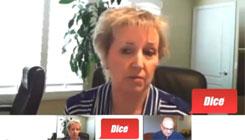As more organizations adopt social learning (i.e., having employees informally teach each other) to help workers keep their skills up-to-date and learn about new tools, tech pros have an opportunity to set themselves apart by jumping in as the experts on specific topics. When they do, they raise their visibility and solidify their reputation, making themselves into stronger candidates for advancement, more money, or even new jobs. Social learning brings together two heightening waves in the business world: the use of social media and the impatience of younger workers with old-school methods of learning and communications. Experts say training manuals, classroom sessions and even online learning programs are far less attractive to people whose first impulse is to ask questions of friends and colleagues, or turn to social media, when they need new information. “Remember, we’re social creatures, so social’s an important aspect of many parts of our lives,” observed David Blake, co-founder and executive chairman of Degreed.com, a San Francisco-based company whose platform facilitates social learning. “In particular with learning, it’s a lot like exercise, where there [are] actual studies that show it’s contagious. If you’re surrounded by other people who learn—or exercise for that matter—you’re more inclined to do so yourself.”
It’s All About Conversation
Training and development professionals say social learning is based on collaboration and conversation, as opposed to watching a video or working your way through an online tutorial. Unsurprisingly, advocates say businesses like social learning because it cuts down on costs. Because it’s ongoing, social learning leverages the knowledge of managers and internal subject matter experts in a way that reduces the need for training programs and “formal” learning experts. In sum, the company realizes increased productivity and more dynamic training among more people, all while spending less money. Obviously, that’s great for employers. But consider how learning is a particularly strong cultural component in technology organizations. “Technology is an industry where the forces of acceleration are always present and maybe more dramatic than other fields,” Blake noted. “And that said, technology at this point affects every industry.” Tech pros can take advantage of all this by becoming their company’s known subject matter expert (SME) on a topic that’s especially relevant to them, their organization, or their industry. Even if information is easier to obtain nowadays, Blake said, “learning deeply about something is still very valuable” because others recognize that doing so requires a significant time commitment. Becoming a specialized thought leader, he added, is a way “you can really add value back to your team and back into the organization.” “For me, learning includes collaboration,” said Eduardo Kassner, chief technology & innovation officer for Microsoft’s One Commercial Partner group. “Once I’ve learned, I’m part of the community and I’ve got to give back.” Tech pros who don’t learn, Kassner believes, aren’t doing their jobs: “Nobody’s doing everything for the first time ever. Somebody else has done something, so you’ve got to learn from others.” However, simply becoming the expert on a topic isn’t enough. Visibility matters, too. “It’s great if you know something deeply, but you’re only going to be valuable at the rate at which you encounter that problem,” Blake noted. With that in mind, it’s important to position yourself so that whenever anyone in the company has an issue that requires your expertise, they know you’re the person to turn to. On top of that, becoming a known SME signals to others that you’re adaptable and engaged. Both are good things in today’s ever-changing tech world.
Social Learning Fits Tech’s Culture
Obviously, the most successful tech careers are built on deep technical knowledge. That’s another reason to dive into a topic and let people know you’re an expert. Deep knowledge can be leveraged to gain your next opportunity, “the opportunity where [your] expertise has the most value and can be put to the best use,” in Blake’s words. But again, this means combining your knowledge with visibility. It requires you to make yourself known to the employer or hiring managers “that have the job to be done that you’re uniquely suited to,” Blake continued. “You have to be able to signal that and make that match in the market.” How do you do that? Blake suggests using your
GitHub or other public repositories to their full advantage by keeping them current. Also,
keep an eye on certifications, since new credentials are coming onto the market all the time. Many tech pros and managers talk about the importance of attending conferences, either as a presenter or an attendee, to network with others who are interested in the subjects you follow (and may know someone who needs your expertise, even if they don’t need it themselves). Don’t underestimate the impact your learning can have on your reputation. When making presentations, Blake often asks the audience if they have a written learning goal for themselves. “It’s always a minority of hands that go up,” he said. “To be a professional in today's world, you have to be a pretty good self-directed learner, because technology is evolving and changing all the time,” he added. “Being deliberate and intentional about your learning will almost immediately set you apart.”



